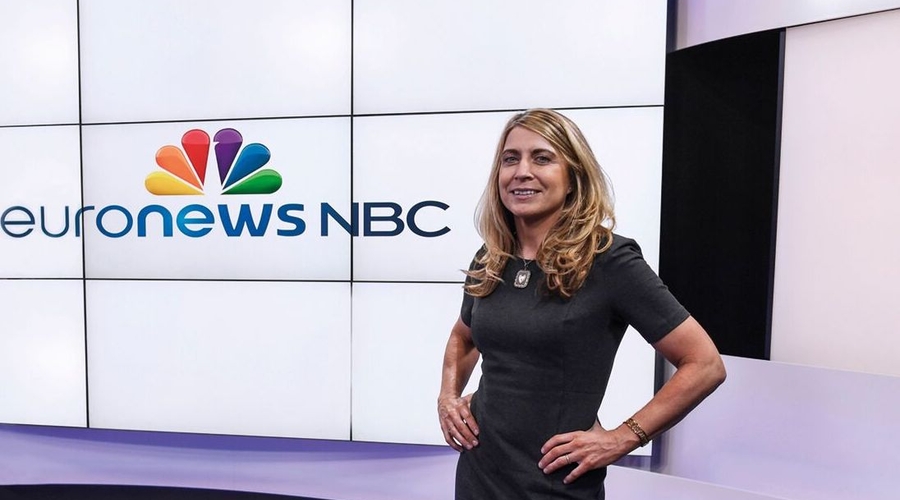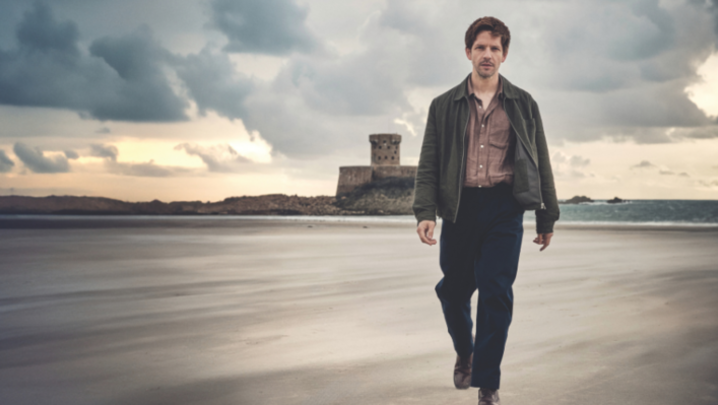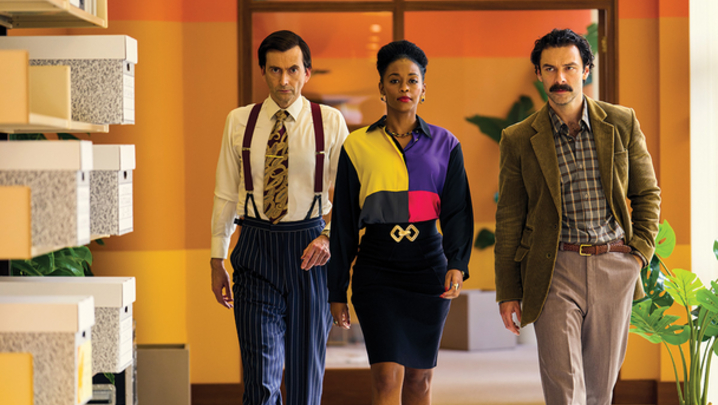Deborah Turness is back in London after her achievements running NBC News in New York. She tells Tara Conlan what’s next
Deborah Turness greets me in the top-floor café of NBCUniversal’s UK HQ, which looks out over London’s rooftops. This is appropriate as NBC News took a 25% stake in Euronews in February in order to “change the landscape of international news”, as Turness’s boss, Andrew Lack, put it.
He said that, for years, NBC News had “wanted to establish a global reach”, and Turness was moving from being President of NBC News to do just that – to become the first President of NBC News International and oversee content for the new Euronews NBC.
The channel, founded in 1993 by the European Broadcasting Union, will use NBC’s resources (an undisclosed financial investment plus all its network) alongside those of its major stakeholder, Egyptian billionaire Naguib Sawiris, to expand. Based in Lyon, Euronews broadcasts in 12 languages to around 3.3 million European viewers daily and reaches more than 160 countries.
A new network of correspondents is being built up, to be followed by the station’s first anchored “global feed”.
But why Euronews? And how has Turness fared since she stepped down as editor of ITV News in 2013 to cross the Atlantic?
She is happy to be back in the UK, but sad to leave the US, where her husband and their two girls had put down roots. Her time as President of NBC News was no bed of roses. She reflects that she was chosen “because I was an outsider… not only to NBC News but also to the US broadcast diaspora”.
“It was a moment when NBC News had been a dominant first for many years and its corporate psyche [considered it to be] number one. But the figures showed that story was changing.”
She had to learn fast: “You do see things more clearly if you come from the outside. But it does present you with a challenge. You need to be humble and go in and take the time to understand the organisation… to act quickly to stem the flow and take action, but also to demonstrate that you are listening and understanding. That’s a challenge for any leader. I let others judge how successful I was at doing that.”
Not long after she joined, Nightly News anchor Brian Williams was suspended after falsely claiming that he had come under fire in a military helicopter.
The woman who hired Turness, Pat Fili-Krushel, became a casualty of the fallout and was replaced by Lack.
Nightly News’s audience dropped off. Meanwhile, ratings for other key shows, such as Today and Meet the Press, had been in decline since Comcast’s takeover of NBC Universal in 2011.
Turness set to work. By the end of 2016, all four of NBC News’s big shows were number one in both of their key demographics – for the first time since 2011.
While she agrees that the Williams issue was not easy, she insists: “How NBC ultimately came through this was a test that it passed with flying colours. [His replacement,] Lester Holt, is now doing brilliantly.
“Was it tough at times? Absolutely. But much more than that, it was the greatest fun. I look back now at what we built and rebuilt and am immensely proud of having done that.”
And so to Euronews. She says she is “grateful” for the “new opportunity”, adding: “I think I’ve come to the conclusion that I’m better at renovation than maintenance. I love nothing better than building something new, or taking something that has real value and a legacy, but rediscovering its new life.”
Turness knows Euronews, having been an avid viewer at university and from working as a journalist in France. Also, her former employer ITN once held a 49% stake in the service.
It’s critical that everyone understands that we are not here to Americanise Euronews
She and Lack looked at other news companies – which she declines to name – as potential investments, but Euronews won.
The channel had already begun to evolve before the deal with NBC News, and there is further change in store. The old Euronews style of airing one video feed and having 12 language options over it, has changed to 12 separate video feeds, one for each language.
Turness argues this is important, “because never has Europe’s story been more complex.… Different countries see it from different points of view and perspectives.”
She is also appointing a team of correspondents – based in major European cities and charged with breaking stories.
Coincidentally, the London reporter will be located in NBC News’s bureau at Gray’s Inn Road, where Turness worked when she was at ITV News.
The next phase will be for Euronews’s English-language feed to become what Turness dubs “our global feed”. The idea is to have an anchored news channel “[with] live anchors in studios and locations responding to breaking news events”, alongside some “built shows”.
Renowned for her innovations (she was partly responsible for perching Kirsty Young on the Channel 5 News desk), the fast-talking Turness wants to use technology to create a news channel with “a slightly different voice”.
Adapting social-media techniques means that some Euronews NBC journalists could “be slightly less perfect and packaged and tethered, and say: ‘Come with me, I’m going to take you to the story. I’ve just landed, I’m in an Uber on my way to the press conference. Direct tweet me any questions.’”
She wants to “break down the barriers to maybe create” what she describes as “a new relationship of authenticity”.
Regarding the fake news debate, Turness believes unreliable sources have always existed but “the problem is that people believe it.… Maybe they believe it because trust has eroded in mainstream media organisations. Why has that happened? Maybe because we could have done better at listening to people who perhaps feel they weren’t listened to.”
Does Donald Trump, then, have a point about mainstream media? “Some of what he says reflects how his supporters feel,” she says, choosing her words carefully. “Some of what he says is also deeply unfair and exaggerated.”
Although The Apprentice aired on NBC, she had no greater insight into Trump than others, and thinks that, “if things such as his election or the Brexit vote are a giant surprise to us, then it’s probably telling us that we weren’t doing our jobs to the extent that we should have”.
She did not see enough of the UK general election to judge it, but she ensured that NBC News visited the rust belt during the US election and is determined that Euronews should stay true to its history of representing all views, “even those that, to some, might be unpalatable. We’ve gone back to a period of extremes and that must be reflected.”
Turness adds: “Euronews sits at the crossroads of Europe.… If any organisation has the DNA to reflect that, it’s Euronews, but it has not had the resources to express it.”
She stresses: “It’s critical that everyone understands that we are not here to Americanise Euronews.”
With other channels, such as the BBC and CNN, “expressing a very defined national view, Euronews has the opportunity to actually put all the pieces of the jigsaw together and be Europe’s town square”.
But she sees a need to “humanise that”, as she thinks “the views of the people of Europe are not currently adequately represented.… I look at coverage of Brexit or the US coverage of the election – I think we were all found a little wanting, if we are honest with ourselves.
“Did we filter it out using our own subconscious bias? This in an old debate. Our job is to capture the moment we are here to cover and report upon.”







